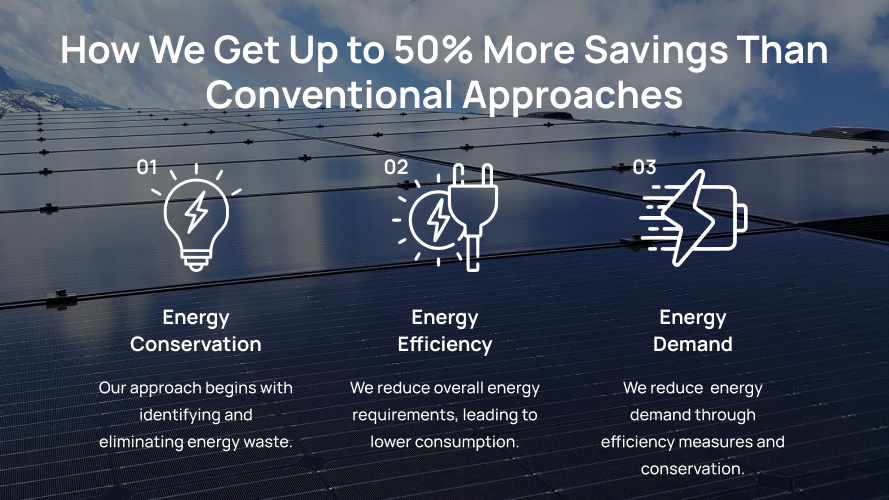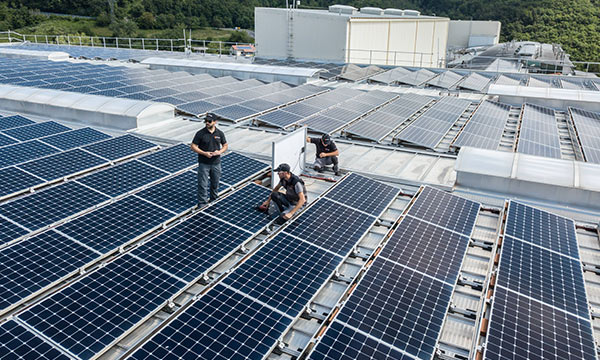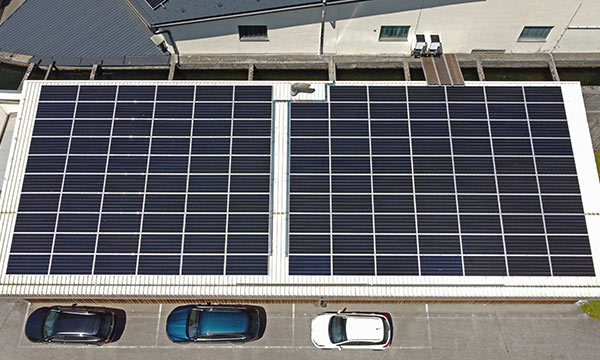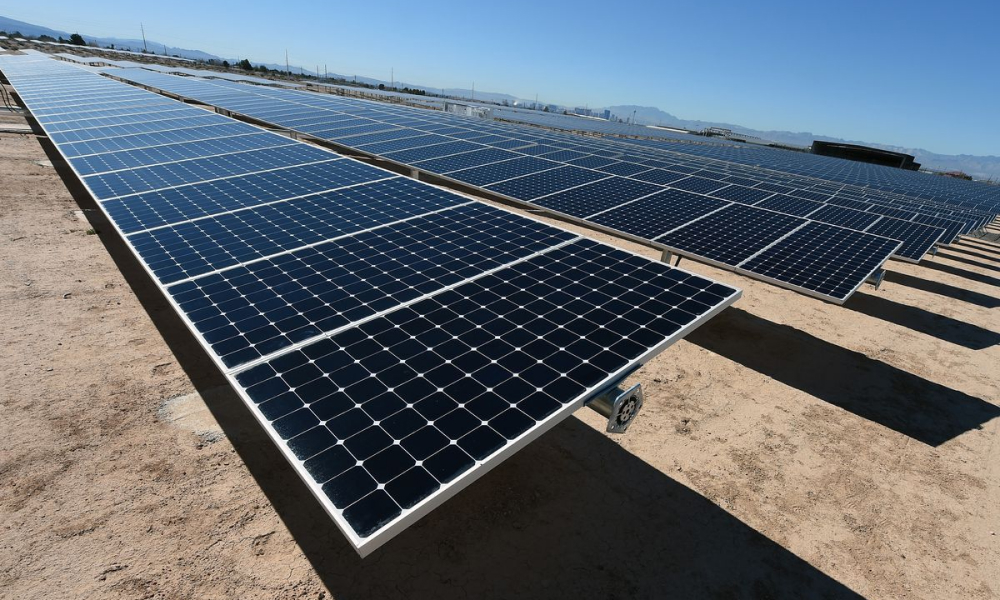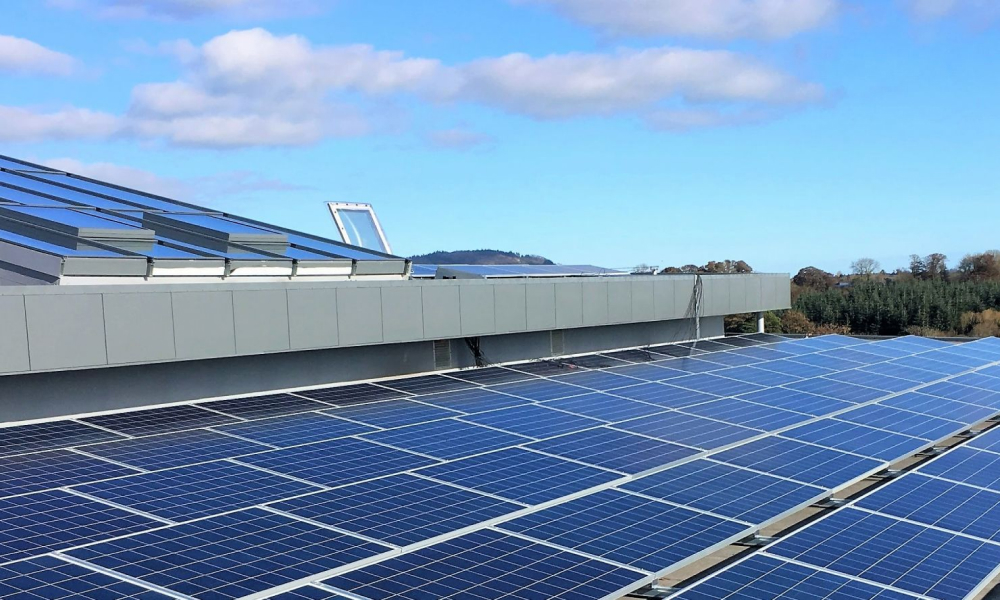Trusted by
Achieve Long Term Savings With Commercial Solar Panels
Harness the power of the sun with our cutting-edge commercial solar panels in SA.
Designed to deliver optimal energy efficiency and long-term savings, our solar solutions are tailored to meet the unique needs of your business.
From large rooftops to expansive installations, our experts specialise in designing, installing, and maintaining commercial solar panels that maximise your ROI. With Sustianable Savings as your partner, you can enjoy reduced energy costs, environmental benefits, and a positive brand image as you embrace sustainable practices.
With a track record of excellence and a commitment to quality, we’re your trusted partner for transitioning towards clean, renewable energy for a brighter, greener future.
Learn more or claim your obligation-free quote by contacting us today on (08) 7120 6366.
What Are The Best Types Of Commercial Solar Panels?
The best types for your South Australia business are those that offer a balance of efficiency, durability, and cost-effectiveness. Monocrystalline and polycrystalline solar panels are popular choices, known for their reliability and solid performance.
- SunPower Performance Series Panels are known for their high efficiency and durability, which ensures optimal energy generation even in varied climate conditions. Their robust design offers exceptional resistance to the harsh environmental elements, making them a reliable and long-lasting solar solution.
- Maxeon Solar Panels stand out because of their superior efficiency and top-tier energy output, which is crucial for harnessing the abundant sunlight in the region. Their advanced technology ensures long-term durability and minimal degradation, making them a highly reliable and sustainable solution.
What We Offer
What Factors Affect Commercial Solar Panel Cost?
The cost in South Australia can vary widely depending on several factors. These include the system’s size, type and quality of panels, installation complexity, location, and available incentives. Keep in mind that government incentives, like Small-scale Technology Certificates (STCs) and grants, can significantly reduce upfront costs.
Here are some of the key factors that can affect the cost::
1. System Size: Larger systems with more panels will generally cost more than smaller systems. The amount of energy your business requires and the available roof or ground space for installation will determine the system size.
2. Panel Efficiency: Higher efficiency panels may be more expensive upfront, but they can generate more electricity in less space, potentially providing a better return on investment over time.
3. Quality and Brand: High-quality panels from reputable manufacturers may come with a higher price tag but often offer better warranties and long-term reliability.
4. Installation Costs: Labor costs for installation, including permits, labor, and equipment, will affect the total cost. Installation costs can vary based on the complexity of the installation and the experience of the solar installer.
5. Location and Site-specific Factors: Roof condition, shading, and local weather patterns can affect the installation process and costs.
6. Government Incentives: Government incentives, rebates, and subsidies can significantly reduce the cost of solar panel installations. Be sure to check for available incentives at the state and federal levels in Australia, as they can change over time.
7. Financing Options: Options such as upfront purchase, solar leases, power purchase agreements (PPAs), and loans can have different financial implications.
For the most accurate and up-to-date pricing, pick up the phone and call a member of our team on (08) 7120 6366 today.

Commercial Solar Panel Benefits
Cost Savings: Solar panels significantly reduce electricity bills, generating free power from the sun and lowering operating expenses.
Long-Term Investment: Once installed, solar panels have a long lifespan, providing a reliable energy source for decades, resulting in long-term savings.
Environmental Impact: Businesses can reduce their carbon footprint and demonstrate a commitment to sustainability, which can enhance their brand image.
Government Incentives: South Australia offers government incentives like STCs, tax credits, and grants, which can significantly offset installation costs.
Energy Independence: Solar panels offer a degree of energy independence, reducing reliance on traditional grid electricity and potential price fluctuations.
Low Maintenance: Solar systems have minimal maintenance requirements, reducing operational downtime.
Increased Property Value: Solar-equipped properties often have higher resale values due to reduced energy costs.
Energy Security: Solar power can provide a stable energy source, especially during power outages.
Community Leadership: Businesses that embrace solar energy inspire others in the community to adopt renewable practices.
What Is The Installation Process For Commercial Solar Panels?
